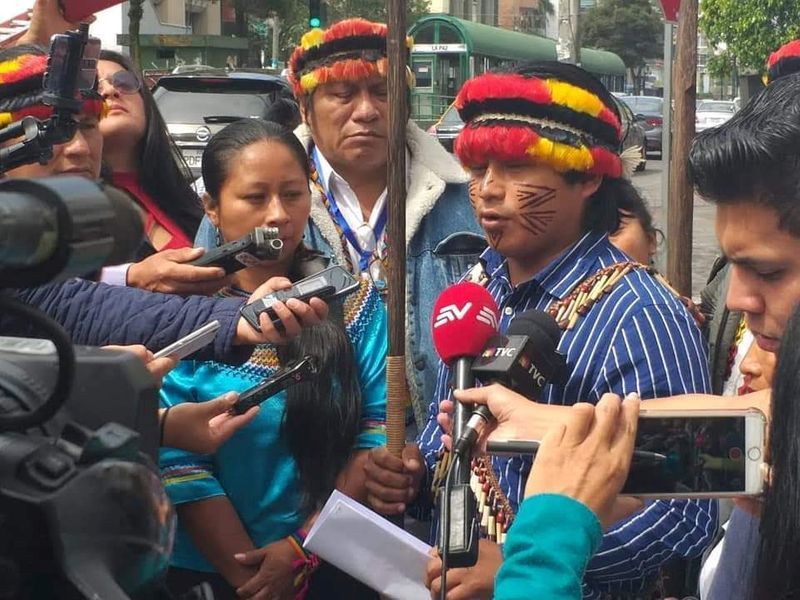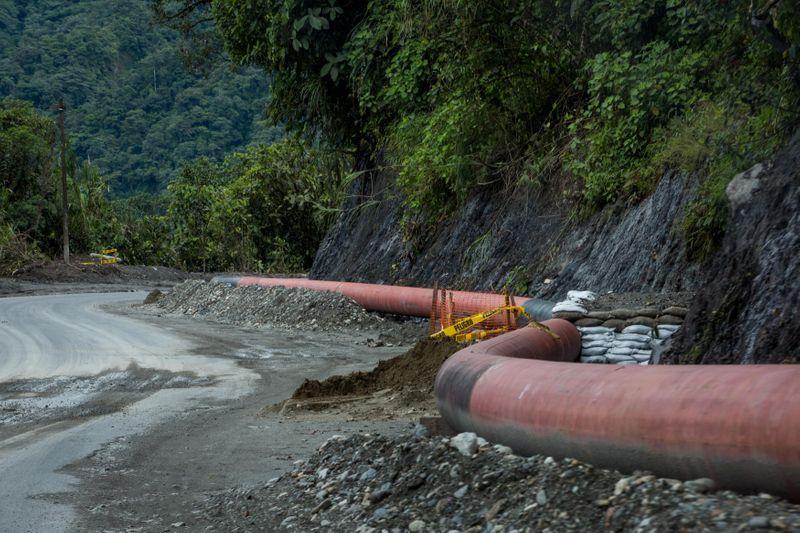Sandbags are seen piled up against a damaged oil pipeline in the Ecuadorian Amazon
Reckless oath to the environment - European banks face indigenous calls to end Amazon oil trade
By Rubina Obaid | The World Daily | AUGUST 13th 2020
"Development goals driven by oil companies and exploration of various commodities caused massive destruction across Amazon biome due to constant human intervention. The situation raised alarms and spurred the global movement by indigenous leaders to call for support"
World's mightiest rainforest Amazon is undoubtedly an iconic ecosystem imaged as lungs for the planet, hosting 25% of global biodiversity. The region mainly contributes to regulating the world's climate conditions on the face of global warming by sequestering a significant amount of carbon dioxide every year. The extraordinary landscape boasts biological and cultural diversity along with large oil and gas reservoirs. Mounting oil demand and price hike stimulated unprecedented endeavors of oil and gas exploration projects in the territory. This has already caused major environmental and social impacts that include deforestation, drilling platforms, and contamination caused by oil spills and wastewater discharge. According to the latest report by Amazon Watch, reflecting the greed of oil companies for expanding the extraction in western Amazon that is, parts of Colombia, Ecuador, and Peru.
Development goals driven by oil companies and the exploration of various commodities caused massive destruction across Amazon biome due to constant human intervention. The situation raised alarms and spurred the global movement by indigenous leaders to call for support. They appealed to restrict European banks to stop financing oil exploration companies which will pose greater threats to our climate. Another report published by North American environmental organization Stand.earth and Amazon watch revealed the shocking facts about the dual game played by the European banks that are financing the trade of controversial oil from Amazon. The report traced $10bn of trade financing from nineteen European banks have incurred since 2009 covering oil extraction projects.

Representatives of the Shiwiar, Sapara and Kichwa indigenous communities gather to deliver a statement in Quito
The report released just after a week of the Indigenous Federation of United Communities of Ecuadorian Amazon that represents the communities that are affected majorly by the oil spills in April. While presenting a series of lawsuits, they also requested for the significant precautionary measures to mitigate the threat of another potential spill due to the regressive erosion. The coalition of environmental activists and indigenous leaders also launched an emergency campaign while challenging a moratorium on current crude oil production due to the recorded contamination and risk of future spills. The renowned banks specified in the report are ING Belgium, Credit Suisse, UBS, and BNS Paribas (Suisse) SA in Geneva, Switzerland; Natixis in Paris, France, and Rabobank in the Netherlands. A total of nineteen banks were assessed in the report and revealed their controversial role in going against the climate neutrality pledge. These banks have been involved in trade financing for approximately 155 million barrels of oil from Ecuador to refineries in the US for an amount of USD 10 billion.






